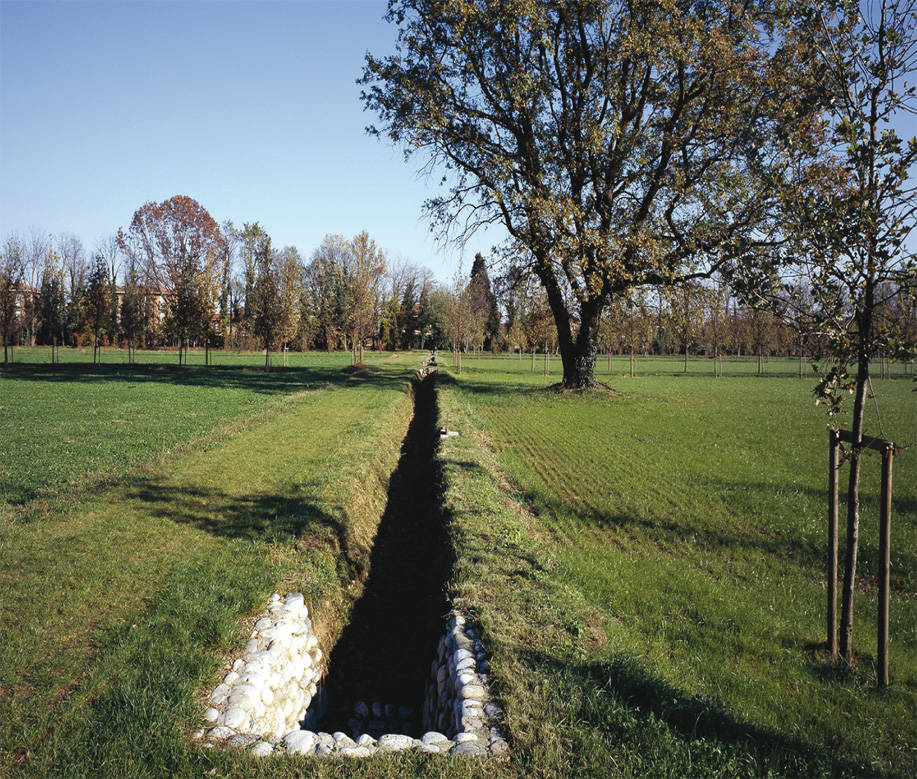location: Torino
Tasting the Landscape, the title chosen for the 53rd International IFLA (International Federation of Landscape Architects) Congress, calls for the interpretation of the landscape project as an expression of a greater consciousness of the transformation processes and as an opportunity to improve the places where populations carry out their life.

The expression Tasting, according to it’s meaning of savoring, experiencing, trying applied to the landscape, implies an attention given to the sensorial dimension of a place, a consideration of slowness as a value: it urges us to not forget the emotional and perceptive aspects as creative agents for the project. Furthermore, it refers to the experience of discovery, to an inventive attitude that leads to in depth investigating, seeking to understand, to evaluating and re-elaborating images, practices, and signs that can orient the inevitable change of regions and landscapes according to a shared and communal feeling.
Thus, Tasting the Landscape intends to emphasize the landscape project as an instrument that produces quality, wellness, resources, the common good, as well as the central role of the landscape professional in the processes of regeneration and reconfiguration of places and regions. For participants, the Congress will constitute a privileged field for confrontation and discussion of the dimension of the peri-urban landscape, areas where different practices, lifestyles and forms of change meet and collide. Here, the tensions of transformation of human settlements express themselves with greater intensity and agricultural space tends to lose its productive traditional role: the relationship between city and countryside is destined to recombine itself in renewed multifunctional and heterogeneous layouts. These instable, hybrid, ambiguous areas, exactly so because they tend to be unresolved, constitute a fertile terrain for research and the application of landscape planning and design: indeed, it would seem that a good part of the sustainability challenge is playing out for the city of the new millennium in these peri-urban spaces. A challenge that calls together administrators, engineers, the citizenry, and farmers to collaborate and that makes the contribution of the landscape professional indispensable.
Starting from this platform of general direction, the 53rd International IFLA Congress will be structured according to four specific lines of thematic investigation, identified with the objective of investigating some emerging questions in the practice of Landscape architecture.
Sharing Landscapes Considering the city not so much as a place of consumption, but most of all as a sphere where food, society, and region relate, this session seeks to investigate every aspect of the production of food resources in an urban and peri-urban environment. The foundational concept is that agricultural is multi-functional in its potentiality. Post-agricultural landscape forms and projects can help construct a new dimension of open space as a shared landscape. Key words abundance, regeneration, care
Connected Landscapes The concept of sustainability implies the capacity to assure, in the course of a determined process of transformation, the conservation and the reproduction of goods and resources from an economic, environmental, natural and social point of view. This session intends to demonstrate how by favoring connections between the different variables in play and by overcoming the rigid contraposition between conservation and development, the landscape project can constitute a valid instrument for generating new economies through changes in places and regions. Key words resilience, green infrastructure, ecosystem services
Layered Landscapes This session explores the action of the landscape professional on layered places, characterized by a historic depth and by the overlaying of memories and uses, which assume a contemporary dimension through cultural contamination, the recognition of biological and temporal diversity, and the reactivation of spatial and semantic relationships. In these contexts, the landscape plan and project become instruments for experimenting innovative strategies and practices of care, inventive conservation and valorizing resources. Key words layering, inventive conservation, resignification
Inspiring Landscapes
This session intends to emphasize a particular social function of landscape architecture, that connected to the construction of the collective imagination and to the active conservation of a shared poetic patrimony. Thus, as the different languages of art have contributed in time to form an idea of the landscape and of beauty in nature, the work of the landscape professional can favor the reinvention of a common feeling of places, even through unprecedented “contaminations” with artistic works. Key words cultural biodiversity, collective imagination, aesthetic explorations
Deadlines:
15th of February - Congress admission reduced tickets for those that confirm their participation in advance
11th of February - Charette students admission
further informations here: www.ifla2016.com





